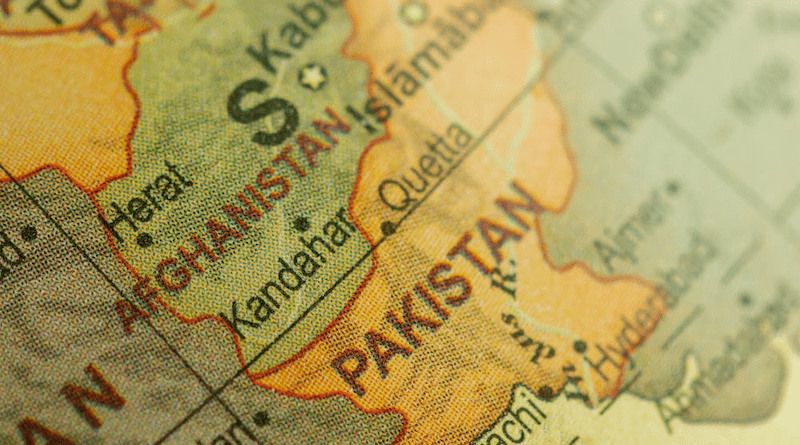GCC-Pakistan Partnership: A Model For Global Counter-Narcotics Collaboration – OpEd
By Alina Fayaz
The global narcotics trade has reached historic heights while Pakistan and the Gulf Cooperation Council (GCC) nations collaborate to establish an effective model for combating worldwide transnational challenges. Recent political changes in Afghanistan have not reduced its position as the main supplier of opium and methamphetamine so regional cooperation has become an absolute necessity. The April 2025 Counter-Narcotics Conference between Pakistan and the GCC establishes a key moment which highlights the critical need for combined drug network dismantling operations across South Asia and the Middle East and beyond.
The United Nations Office on Drugs and Crime (UNODC) reports that Afghanistan produces 80% of the world’s opium while remaining the main opiate production center. Intelligence reports and satellite imagery indicate that methamphetamine production has increased rapidly in Afghanistan while the Taliban fails to keep their promise of controlling drug cultivation. The drugs are transported through Pakistan and other neighboring countries toward worldwide markets. Pakistan’s position between major producer nations and high-demand markets positions it to serve as both a leading narcotics combatant nation and essential partner for countries such as the UAE, Saudi Arabia and Oman.
The Anti-Narcotics Force of Pakistan made 745 kilograms of methamphetamine seizures during 2024 which demonstrates the escalating nature of this dangerous threat. The Anti-Narcotics Force’s combined drug seizures from airports and parcels and port control units reached 5,346 kilograms in 2024 which demonstrates both the extensive drug trafficking operations and improved law enforcement capabilities. The commendable drug seizure statistics demonstrate Pakistan’s infrastructure challenges and highlight the necessity for long-term regional collaboration.
Afghan narcotics affect the GCC states even though they produce minimal drugs domestically. The International Narcotics Control Board (INCB) reports that the Gulf region now shows increased synthetic drug usage as methamphetamine and Captagon become more prominent in Riyadh and both Dubai and Doha. The drugs create multiple public health risks while creating difficulties for law enforcement agencies and national security forces and economic productivity. The increase in maritime smuggling operations through the Arabian Sea and Gulf of Oman makes it harder for authorities to intercept drug trafficking activities.
This complex regional environment enables the GCC-Pakistan partnership to produce tangible results. The increased coordination between joint operations has resulted in major arrests and border seizures throughout different jurisdictions. Progress has been made in intelligence exchange systems because they now enable real-time data transmission for preemptive counter-trafficking operations. The partnership gains increased authority through institutional backing provided by the UNODC and GCC-CICCD as well as expanded reach through their involvement.
This alliance places particular emphasis on building capabilities and training as one of its main features. The GCC organizes workshops where Pakistani officers receive training about detecting narcotics and following financial crimes and protecting cyber networks against drug trafficking activities. Gulf states have started investing in Pakistan’s border control infrastructure through investments in Balochistan and the development of Gwadar as a commercial hub and potential security risk for the regional security grid.
The collaborative effort stands out because it operates across multiple dimensions. This partnership includes policing and seizures but extends to policy discussions together with legal adjustments and directly affects community interventions. Stakeholders during the April 2025 gathering stressed how organizations must leave retributive methods and tackle core problems starting from economic destitution to jobless youth and deficient surveillance structures. The preventive approach holds particular significance for Pakistan given its 6.7 million population who suffer from drug addiction based on the results of the last UNODC national survey.
The partnership focuses on technological investments which represent the essential element for contemporary narcotics control operations. Modern anti-narcotics operations identify AI surveillance at key transit areas and blockchain cargo tracking solutions and biometric customs screenings as standard practices instead of exceptions. Such measures involve substantial expenses but lead to long-term operational efficiency and rise the risk of deterrence.
Through their strategic alliance GCC-Pakistan provides multiple advantages to stakeholders operating at a global level. The United States along with Western European nations have been searching for regional partners to help share counter-narcotics operation responsibilities. After both American military departure from Afghanistan and Western agency withdrawal from South Asian territories the responsibility of counterterrorism operations shifted to local powers in the region. Pakistan and the GCC have introduced a locally adapted and geopolitically unbiased model of cooperation which international actors are starting to recognize.
Still, challenges remain. Traffickers benefit from the ongoing existence of cross-border tribal networks and corrupt enforcement agencies and unstable political conditions in Afghanistan. Criminal networks that operate these drug smuggling operations show quick adjustment capabilities by exploiting legal voids while employing cryptocurrencies as well as coordinating through humanitarian aid distribution routes to pass drugs.
A sustained plan needs to establish permanent systems that protect the progress already achieved. The strategy should establish formal joint task forces and develop a regional narcotics database and simplify extradition treaties between member states.
Civil society organizations together with media outlets need to participate in awareness campaigns to establish grassroots-level resilience. Counter-narcotics strategies succeed beyond drug seizures because they aim to disrupt the entire chain of drug demand and production and impunity.
The GCC-Pakistan partnership establishes more than regional cooperation because it demonstrates a model for worldwide counter-narcotics collaboration. Countries demonstrate their potential for success through cooperative security measures that prioritize mutual prosperity above geopolitical disputes. This collaborative approach demonstrates to the world that unified action surpasses unilateralism as the proper strategy to address the evolving drug crisis which generates conflicts and damages economies and public health. The world needs global unity at this present moment. The model needs adaptation by other regions to establish a global scale-up of the fight against this enduring threat.

